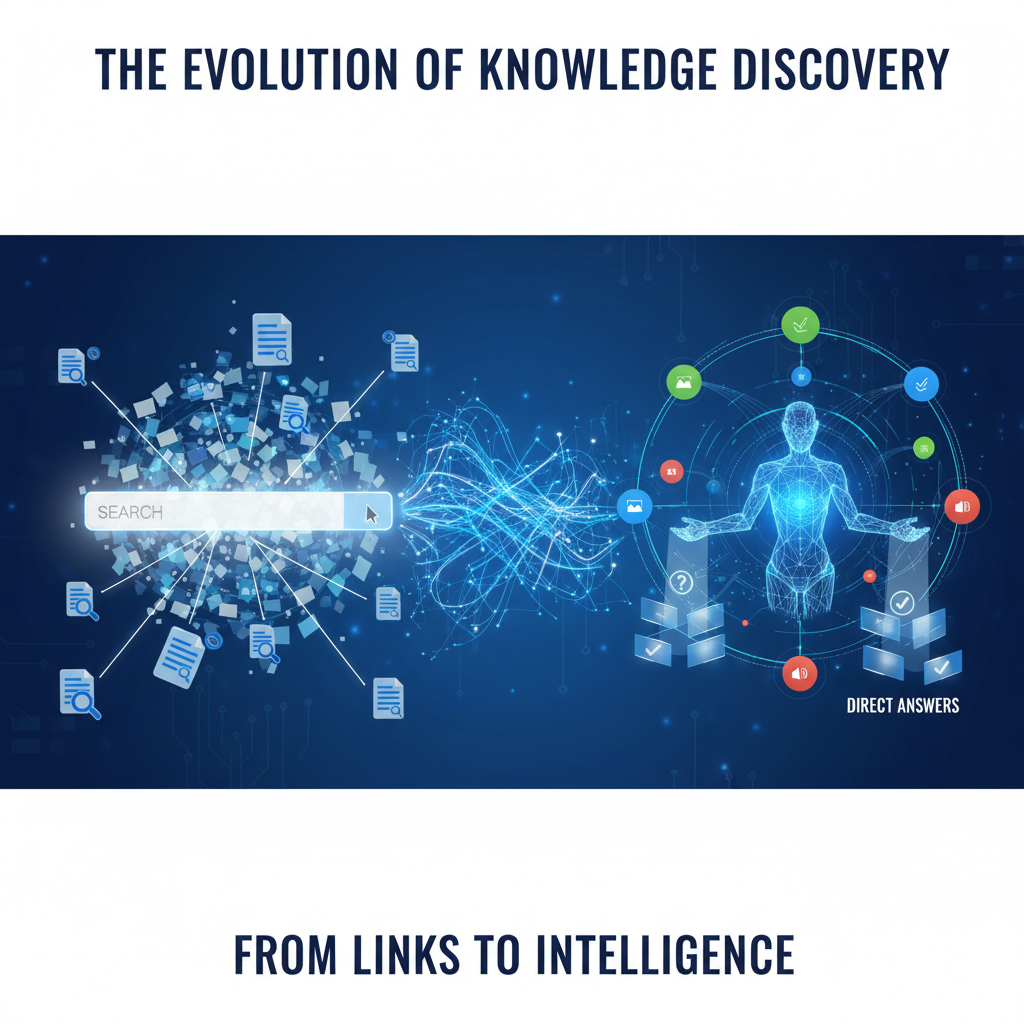
Frameworks, core principles and top case studies for SaaS pricing, learnt and refined over 28+ years of SaaS-monetization experience.
Thank you! Your submission has been received!
Oops! Something went wrong while submitting the form.
Join companies like Zoom, DocuSign, and Twilio using our systematic pricing approach to increase revenue by 12-40% year-over-year.

In today's data-rich digital landscape, finding exactly what you're looking for can feel like searching for a needle in a global haystack. Traditional search engines have served us well, but they're evolving into something far more sophisticated through agentic AI—intelligent systems that understand context, intent, and can take autonomous actions on our behalf. This revolution in search technology is reshaping how businesses access information and creating new opportunities for competitive advantage.
Before diving into the future, let's understand our starting point. Conventional search engines operate primarily through keyword matching and link analysis. While these techniques have become increasingly sophisticated, they still face fundamental challenges:
These limitations create friction in the information retrieval process, costing organizations valuable time and potentially missing critical insights hidden within data.
Agentic AI represents a paradigm shift in search technology. Unlike passive systems that simply respond to queries, agentic AI search systems can:
According to research from MIT's Computer Science and Artificial Intelligence Laboratory, agentic search systems demonstrate up to 37% higher accuracy in retrieving relevant information for complex queries compared to traditional search engines.
Several technological advancements are driving this transformation in information retrieval:
Modern search AI systems leverage large language models (LLMs) that understand context, semantics, and even implied meaning in search queries. Rather than simple keyword matching, these systems grasp the intent behind searches.
Advanced search optimization now employs techniques where AI systems learn from user interactions, refining their results based on which information proves most useful. This creates a virtuous feedback loop that continuously improves search quality.
By mapping relationships between entities and concepts, knowledge graphs provide search AI with structured understanding of the world. This enables more intelligent connections between related pieces of information that might not share obvious keywords.
The newest search AI systems can process and understand information across text, images, audio, and video simultaneously, creating more comprehensive information retrieval capabilities.
The practical applications of these technologies are already transforming how organizations operate:
Companies like ServiceNow have implemented agentic search systems that can navigate complex internal documentation, connect information across previously siloed departments, and provide employees with precise answers rather than document links. Their implementation reduced time spent searching for information by 63%, according to their 2023 productivity report.
Pharmaceutical companies including Pfizer and Novartis now employ query intelligence systems that can autonomously explore scientific literature, identify relevant studies, extract key findings, and even suggest novel connections between research domains that human researchers might miss.
E-commerce platforms like Shopify are integrating intelligent search that understands customer intent beyond keywords. When a customer searches for "summer dress for wedding," these systems understand the contextual needs including formality level, seasonal appropriateness, and occasion suitability.
For organizations looking to enhance their information retrieval capabilities with agentic AI, several key considerations should guide implementation:
Establish clear KPIs for search performance improvement. Is the goal faster information retrieval, more accurate results, or discovery of previously hidden insights?
Intelligent search systems require high-quality, well-structured data. Audit existing information repositories and establish consistent data governance practices.
The interface between users and AI search systems critically impacts adoption. Design intuitive interfaces that leverage natural language while providing appropriate transparency into AI reasoning.
Implement appropriate safeguards for sensitive information and ensure compliance with relevant regulations regarding data usage and privacy.
The evolution of information retrieval continues to accelerate. Several emerging trends point to the future of search:
Rather than waiting for queries, next-generation systems will anticipate information needs based on context and user behavior, delivering relevant insights before they're explicitly requested.
Multi-agent systems will enable collaborative information gathering where multiple specialized AI agents work together to solve complex information needs, mimicking human research teams.
Search systems will increasingly leverage continuous learning, adapting not just to general patterns but to specific organizational contexts and terminology over time.
As information continues to grow exponentially in volume and complexity, the ability to efficiently find, synthesize, and act upon relevant data becomes an increasingly critical competitive advantage. Organizations that invest in advanced search AI capabilities gain not only operational efficiency but also enhanced decision-making capabilities.
The evolution from simple keyword search to intelligent information retrieval represents more than incremental improvement—it's a fundamental shift in how we interact with the world's knowledge. By understanding and implementing these technologies thoughtfully, forward-thinking organizations can ensure they stay ahead in an increasingly information-driven business landscape.
For SaaS executives, the message is clear: intelligent information retrieval isn't just a technical upgrade—it's a strategic investment in your organization's ability to leverage its most valuable asset: knowledge.

Join companies like Zoom, DocuSign, and Twilio using our systematic pricing approach to increase revenue by 12-40% year-over-year.